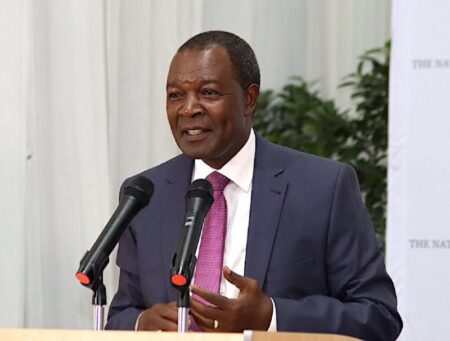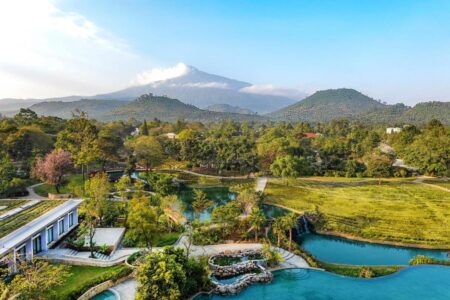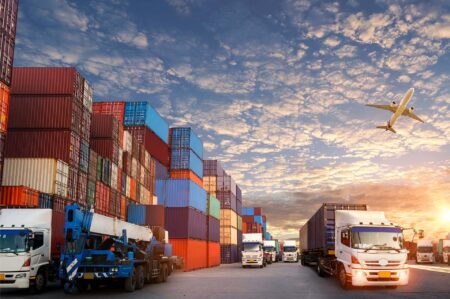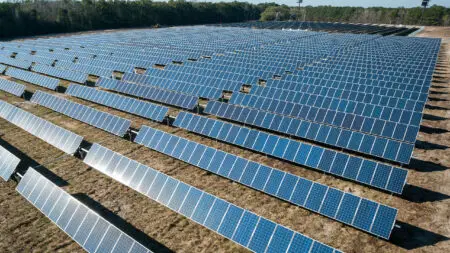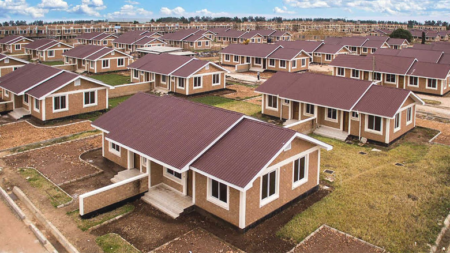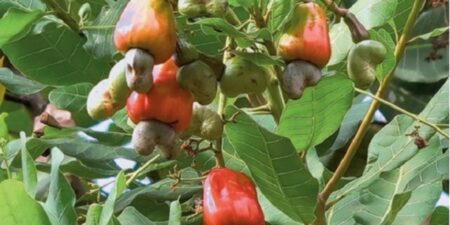- Kenya Apparel Exports Targetting $1 Billion by 2025
- Inaction On SDGs to Cost Global Economy an Extra $38 Trillion
- Pullman Hotel Nairobi: French hospitality firm Accor to Open 1st Premium Brand in Kenya
- Investors tip Abu Dhabi as the next tech powerhouse globally
- Unlocking global investment potential: ministerial roundtable insights at AIM Congress 2024
- UN Tourism empowers women entrepreneurs at AIM 2024
- Kenya’s business conditions stabilised in April but heavy rains a concern for Q2
- Floods Sweep Away Billions in Economic Gains in Kenya and Tanzania
Browsing: premium
- Businesses in Kenya are facing the impact of tightened monetary policy that is resulting in high lending rates.
- The government is under increasing pressure from investors to settle huge pending bills.
- At the same time, the Kenya Shilling is steadily losing ground against major world currencies, piling pressure on external debt obligations.
In the second half of the year, business optimism for companies and sectoral growth prospects in Kenya appears to be subdued, largely influenced by the dual challenges of high taxes and a weakening Shilling.
The government’s task of balancing rising debt levels with tax revenue generation is taking center stage in a scenario complicated by other economic factors.
A confluence of high-interest rates within the banking sector, a politically sensitive environment, the accumulation of pending bills that impact private sector cash flow, and the depreciation of the Kenyan Shilling is painting a complex business environment.
The Shilling has …
The hospitality industry is changing fast. When considering the future hotel experience, you are no longer just looking at a travel destination or a sleepover spot. Hotels of the future must offer more. An ‘augmented hospitality experience’ is what experts are calling it. Thus, stakeholders in Africa’s hospitality industry must explore ways to adapt.…
- Africa has huge potential to power global supply chains for automobiles, handsets, food, renewable energy, and healthcare.
- The value of the African supply chain finance market rose by 40% between 2021 and 2022, reaching $41 billion.
- Africa has at least a fifth of the world’s reserves in a dozen metals critical for the energy transition.
- African countries need to capitalize on their comparative advantages and bolster technology adoption, improve logistics and leverage trade agreements.
Riding on its key comparative advantage of driving green transition globally, Africa can become a new hub for international supply chain, including for technology intensive industries. However, to realize this ambition, the ball lies principally in the court of policymakers in Africa and businesses to position the continent at an advantage.
These revelations are contained in the new United Nations Conference on Trade and Development (UNCTAD) Economic Development in Africa Report 2023 released on 16th…
As a form of private equity funding, venture capital finance African startups at the nascent stage. Money is given to firms with significant growth and revenue creation potential. Across economies, VC firms are critical drivers of growth and development in Africa. They drive job creation and innovation and finance the rollout of new products and technologies.…
- Across Africa, a direct correlation exists between income levels and energy use.
- Poor households are often constrained to rely on environmentally detrimental fossil fuels like charcoal and firewood for energy.
- With better incomes, African households can transition to cleaner energy alternatives such as natural gas.
The pioneering work of Kraft and Kraft in the mid-20th century established a link between energy consumption and economic growth in the USA. Drawing on similar principles, recent research has highlighted a direct connection between income levels and energy consumption patterns in Africa.
This article delves into the intricate relationship between income and energy use in Africa and emphasizes the pivotal role of financial inclusion in addressing poverty and climate change.
The link between income and energy consumption
The fundamental theory of consumption posits that household income shapes consumption habits, encompassing not only food but also energy sources. Notably, a direct correlation exists between …
- Globally, it’s time to usher in an era of sustainable resource management, embrace green practices, or face the risk of extinction.
- Achieving development without polluting our surroundings is not only vital for human well-being but is the bedrock of our very survival.
- Fuel subsidies provided to oil companies by governments have perpetuated the use of polluting fuels, leading to staggering mortality figures.
The world’s pursuit of progress and development has come at a hefty price, as pollution and environmental degradation threaten our very existence. Clean air, land, and water – the fundamental pillars of life – are now under siege due to unchecked industrialization and unsustainable practices. The question looms: Can humanity continue to advance without imperiling its own survival?
Sustainable financing
The urgency of the situation is crystal clear. Achieving development without polluting our surroundings is not only vital for human well-being but is the bedrock of our very …
- With Tanzania’s urbanization on the rise, the need for affordable housing finance is increasing.
- High-interest rates and lack of affordable housing remain the prime constraints facing Tanzania’s mortgage market.
- There are 32 banks offering mortgage facilities, down from 33 following acquisition of First National Bank Tanzania Ltd by Exim Bank Tanzania Ltd.
In the sun-soaked expanses of Tanzania, a housing revolution is unfurling, led by an unlikely conductor: interest rates. The symphony of change echoes the crescendo of demands for affordable housing, reverberating from the National Housing Corporation (NHC).
With Tanzania’s urbanization quickening its pulse, the need for housing finance surges alongside the ascent of metropolitan dreams.
In a nation where growth is as tangible as the earth beneath, the NHC’s data reveals an urgent anthem: a staggering demand for three million housing units, sprouting at a rate of 200,000 annually. This wave is in sync with the rapid urbanization …
- A number of factors are hindering Tanzania’s journey to make cashew its true cash cow.
- Cashew nuts account for an impressive 15 percent of the country’s annual forex earnings.
- Estimates show Tanzania contributes over 20 percent to the continent’s annual cashew nut supply, a remarkable feat by any measure.
Tanzania, a nation adorned with natural beauty and abundant resources, boasts a flourishing cashew nut industry that has long been a cornerstone of its economy.
Accounting for an impressive 15 percent of the country’s annual foreign exchange earnings, the cashew sector is undoubtedly a vital component of Tanzania’s economic landscape. Yet, amidst the lush orchards and the promise of prosperity, lies a story of unrealized potential. There are hurdles that the nation must overcome to harness the true power of its cashew bounty.
Ranked as Africa’s fourth-largest cashew producer, Tanzania contributes over 20 percent to the continent’s annual cashew nut …
- Today, many Africans struggle to manage their finances, often using up their salaries before they even receive them.
- This struggle is partly due to a failure of financial inclusion, which is a chance for all individuals to access financial tools.
- Financial inclusion is a means of reducing inequality and bridging economic gaps.
Financial inclusion is a concept that transcends economic borders, embodying the idea that access to financial services is a fundamental human right that can empower individuals to build wealth and improve their lives.
While financial inclusion might appear irrelevant to those who seemingly have access to financial tools, it’s imperative to recognize that a significant portion of the global population, particularly in Africa, still faces barriers to formal financial services.
According to the World Bank’s 2021 Global Findex report, up to 38 percent of adults in developing countries remain unbanked.
Financial inclusion means bridging gaps
At its core, …
Egypt’s Nile River Delta is the cornerstone of North Africa’s economy. Boasting a pivotal role in Egypt’s GDP, its fisheries, aquaculture, agriculture, and tourism sectors contribute an impressive 20 per cent to the nation’s economic output.
The Nile River Delta, a verdant stretch spanning 240 kilometers along Egypt’s northern Mediterranean coast, holds a unique significance. Occupying merely 2 per cent to 3 per cent of the country’s landmass, the Delta is home to four out of 10 people living in Egypt today.…





